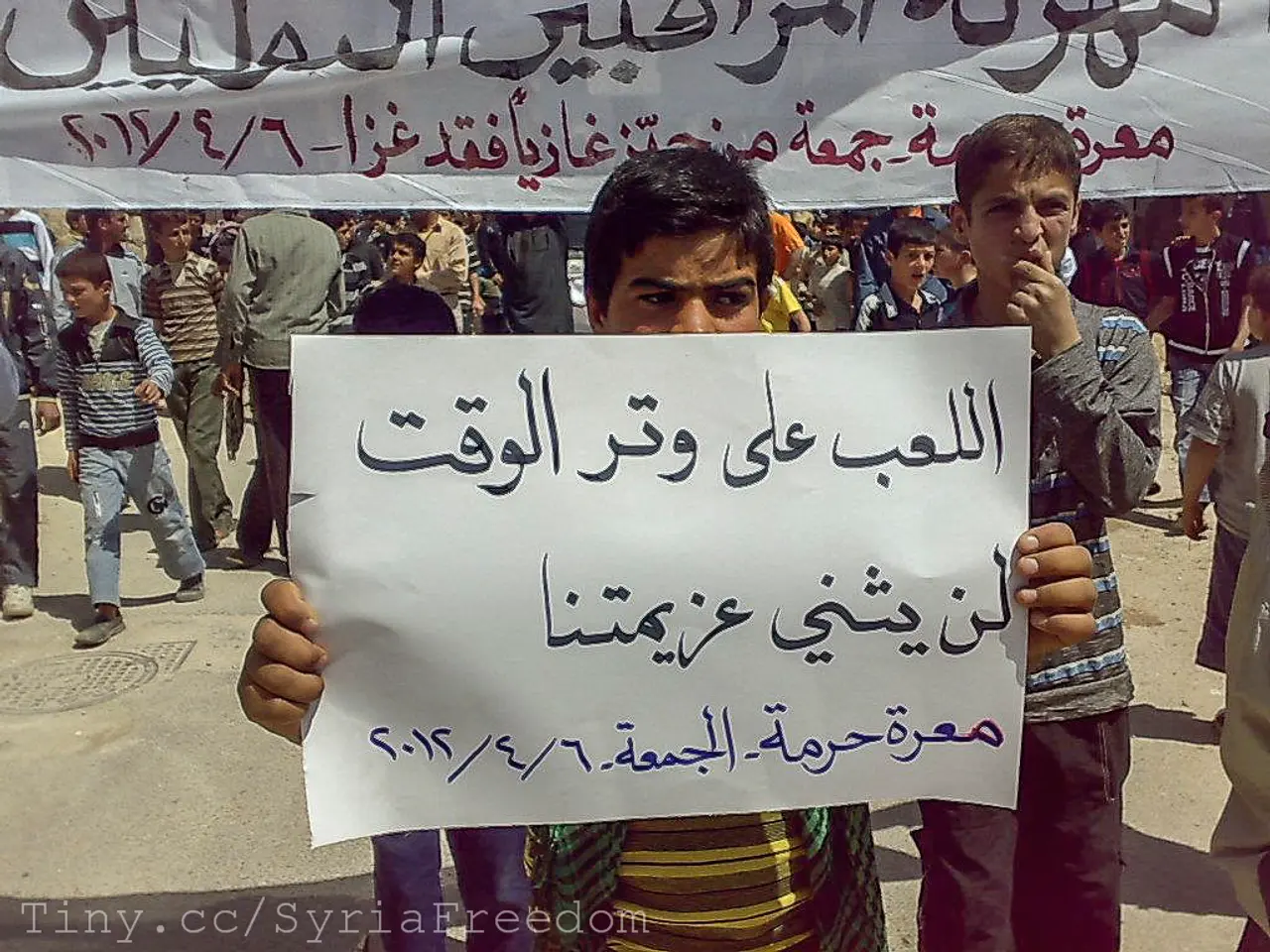Unrest intensifies in Gaza, as masses gather in demonstrations near Israel's borders
In the heart of Tel Aviv, a gathering of tens of thousands of people has become a weekly event. Hostages Square has transformed into a platform for citizens expressing their opposition to Benjamin Netanyahu's decision to escalate the conflict in Gaza.
The protesters, consisting of a diverse group of Israelis, are hopeful that their voices will influence government decisions regarding the dire situation in Gaza. The crowds swell due to Hamas propaganda videos showing starving hostages and Benjamin Netanyahu's decision to take full control of the Gaza Strip.
Yael, a protester, feels like a hostage in her own country and believes 80% of the citizens don't want the government's plan anymore. Similarly, David Solomon expresses concern, believing the government is trying to undermine Israeli democracy and destroy the country.
Meanwhile, in Gaza City and the wider Gaza Strip, the current situation is dire. Widespread displacement, a severe humanitarian crisis, and collapsing living conditions have become the norm. About 90 percent of Gaza’s population—approximately 1.9 million people—have been displaced, many multiple times, forced into less than 14% of the territory considered unsafe and lacking basic services or shelter.
The humanitarian situation is marked by widespread famine, destruction of infrastructure, a shelter crisis, and an overwhelmed healthcare system. Two out of three famine indicators—plummeting food consumption and acute malnutrition—have been met. Over 20,000 children have been treated for acute malnutrition, with hunger-related deaths rising. Approximately 70% of Gaza’s infrastructure has been destroyed, significantly crippling access to water, electricity, health, and sanitation services.
Despite very limited resumption of aid and commercial goods, and recent escalations in military operations by Israel, the humanitarian situation remains largely unchanged. The UN and other agencies have condemned these developments and warned this crisis is "unlike anything we have seen in this century."
Riham Akel, a resident of Gaza City, is currently living in tents that do not protect from heat. She may be forced to move again due to Israel's planned takeover of Gaza City. Gilad Melzer, a protester, holds a sign that says "Stop Genocide" with a picture of a starving child, believing the Israeli public is intentionally ignorant about the situation in Gaza.
Despite international criticism, opposition from his military leadership, and weekly protests in Hostages Square, Benjamin Netanyahu remains determined to escalate the conflict in Gaza. The protesters in Hostages Square continue to hope that someone in government will listen to their concerns.
- The protesters in Hostages Square, expressing their opposition to Benjamin Netanyahu's decision, argue that his actions are leading to a larger war and conflicts in Gaza, which is intertwined with politics and general news.
- As the humanitarian crisis in Gaza worsens, with widespread famine, destruction of infrastructure, and a shelter crisis, the protesters in Hostages Square call for the end of the escalating conflict, fearing it may lead to genocide, a term used by Gilad Melzer's sign.








